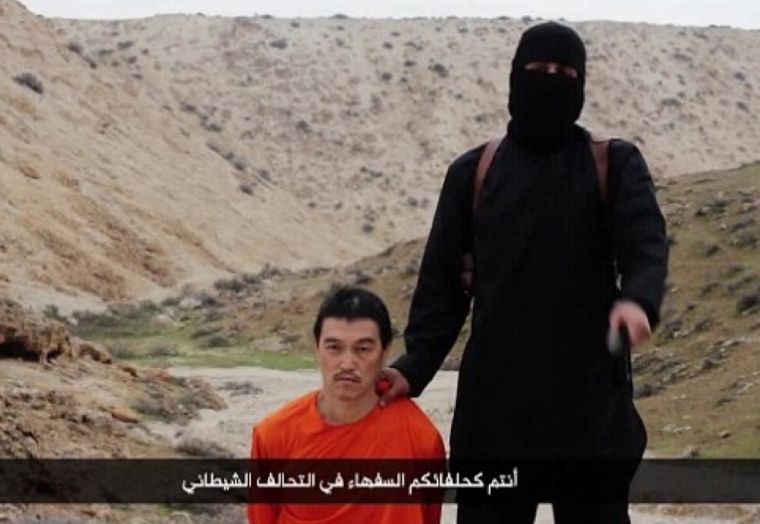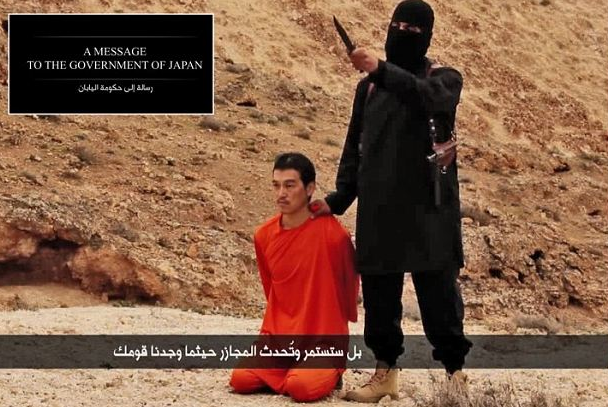ISIS claims to have beheaded Kenji Goto in new video release

Islamic State militants released a video on Saturday which purported to show the beheading of Japanese journalist Kenji Goto, who the al Qaeda offshoot had been holding hostage.
Japan condemned the Islamist group and said Prime Minister Shinzo Abe's cabinet would meet in response to the video, which showed a hooded man standing over Goto with a knife held to his throat, followed by footage of a body with a head placed on it.
The release of the video came exactly a week after footage purportedly showing the beheaded body of another Japanese hostage Haruna Yukawa.
"I cannot help feeling strong indignation that an inhuman and despicable act of terrorism like this has been committed again," Chief Cabinet Secretary Yoshihide Suga said, adding the video appeared to show Goto. "We resolutely condemn this."
A White House spokeswoman said the United States was working to confirm the authenticity of the latest video and "strongly condemns" the militant group's actions.

Addressing Abe, the militant in the video said: "Because of your reckless decision to take part in an unwinnable war, this knife will not only slaughter Kenji, but will also carry on and cause carnage wherever your people are found. So let the nightmare for Japan begin."
The militant had the same British accent as the man featured in previous Islamic State videos showing beheadings. Goto wore an orange jumpsuit like Islamic State captives in past footage.
The landscape in the video showed a hill and land covered in scrub, and appeared different to the desert setting of previous videos.
There was no mention in the one-minute video of another Islamic State captive, Jordanian pilot Muath al-Kasaesbeh who was seized after his jet crashed in northeast Syria in December during a bombing mission against Islamic State.
An audio message purportedly from Goto earlier this week said Kasaesbeh would be killed if Jordandid not free Iraqi Sajida al-Rishawi, in jail for her role in a 2005 suicide bomb attack that killed 60 people in the Jordanian capital Amman.
Abe's government had put high priority on seeking the release of Goto, a veteran war correspondent captured by the militants in late October when he went to Syria seeking Yukawa's release.
The Islamic State threats to kill their Japanese hostages came after Abe announced $200 million in non-military aid for countries contending with Islamic State. His government has rejected any suggestion it acted rashly and stressed the assistance was humanitarian.
U.S. President Barack Obama said in a written statement: "We stand today in solidarity with Prime Minister Abe and the Japanese people in denouncing this barbaric act. We applaud Japan's steadfast commitment to advancing peace and prosperity in the Middle East and globally, including its generous assistance for innocent people affected by the conflicts in the region."











